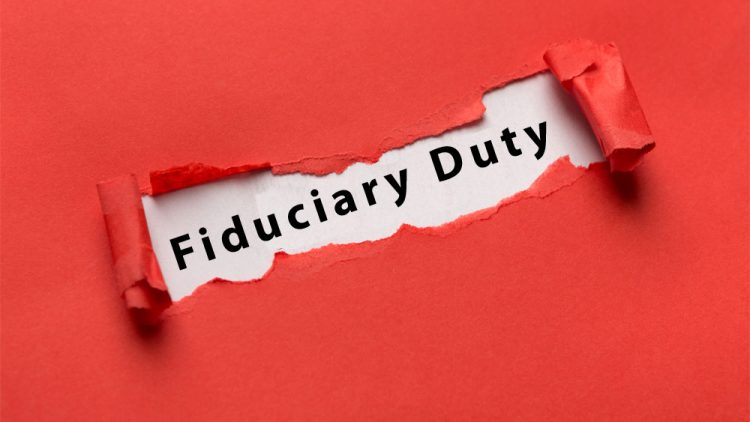How Serious is a Breach of Fiduciary Duty?
There is no legal standard of care that is more stringent than fiduciary responsibility. Fiduciary duty exists in a variety of contexts and situations, but it essentially refers to instances when one party places a special trust or confidence in another. For example, corporate directors owe fiduciary duties to their shareholders, attorneys owe fiduciary duties to their clients, and physicians owe fiduciary duties to their patients. This high standard of care exists because, in many of these instances, the individual owed a fiduciary duty to another party is expected to use his or her knowledge or expertise to advance the interests of the client, shareholder, patient, or other party. Due to this high standard of care, breaching fiduciary duty is regarded as a serious offense that may result in litigation. The following are a sampling of the possible consequences of breaching fiduciary duty.
Damages Compensatory
If a claim of breach of fiduciary duty results in litigation, one of the most frequently occurring outcomes is that the victim receives compensatory damages. Compensatory damages, as their name implies, are intended to compensate the victim for the loss incurred as a result of the breach. For instance, shareholders in a corporation may argue that a decision made by the corporation’s director was made with the intention of benefiting the director at the expense of the shareholders. The shareholders would have to demonstrate to the court that the director violated his or her fiduciary duty and that this violation resulted in a loss for the shareholders. If such a breach is established, the court may order the director to compensate the shareholders.
Damages for Punishment
Violations of fiduciary duty may also result in punitive damages in some jurisdictions. Punitive damages are in addition to compensatory damages and are intended to punish the party who violated the relevant fiduciary duty. Such punitive damages not only deter the defendant from committing the same breach of fiduciary duty in the future, but also send a message to society at large that breaching fiduciary duty has consequences. Typically, punitive damages are awarded only in cases involving fraud or malice.
Consequences on a Professional Level
Apart from monetary losses, professionals may face additional consequences that could jeopardize their careers significantly. A lawyer’s breach of fiduciary duty, for example, could serve as the basis for a legal malpractice lawsuit. Depending on the nature of the allegations, such a breach may even result in an attorney’s eventual debarment. Additionally, a breach of fiduciary duty may result in the revocation of a professional license or accreditation, as in cases involving grave breaches of fiduciary duties by a physician or accountant. The loss of such licenses may be worse than being ordered to pay financial damages, as it may result in an inability to continue working in one’s chosen profession.
A fiduciary duty is one of the highest standards of care currently in existence, and it is a serious offense to violate it. As the preceding article demonstrates, failing to uphold one’s fiduciary duties can result in significant financial consequences and even the end of one’s career.
Real Estate Expert Witness Services by Craig Cherney, Esq.
Craig Cherney is a trusted client advisor and a sought after real estate lawyer and expert witness who is hired by the nation’s top Real Estate Litigation Attorneys to help resolve their litigated real property matters. Craig has appeared as a testifying expert witness before judges and juries in California, Arizona, Nevada and other jurisdictions across the country. Craig Cherney, Esq. Expert Witness Real Estate. 480-399-2342. If you are litigating an easement case, Craig Cherney might be able to help you advance and win your case.
